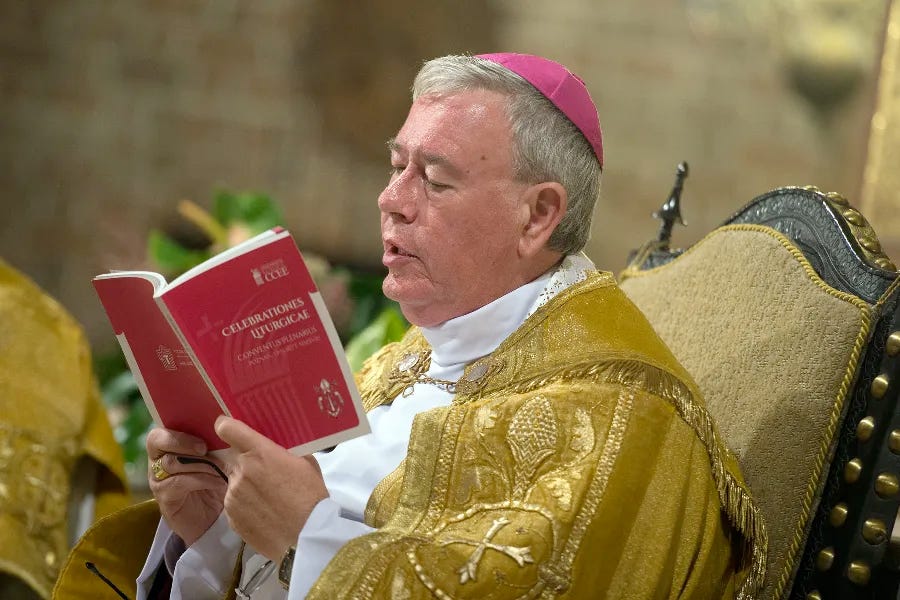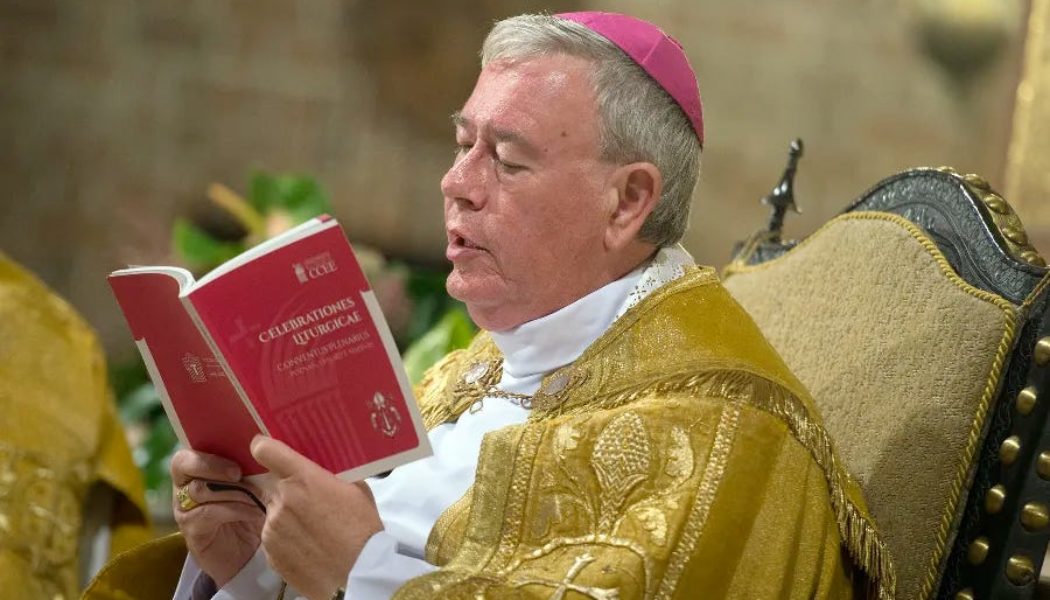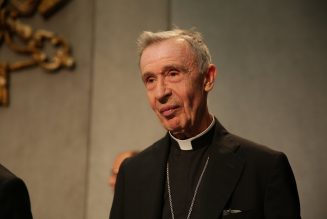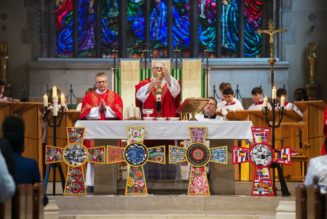The relator-general of the global synod on synodality, Cardinal Jean Claude Hollerich, backed this week the incremental and “tactful” progress towards the ordination of women to the priesthood.
The cardinal, who is also Archbishop of Luxembourg, was appointed by Pope Francis to oversee the collection and synthesis of discussion and responses during the multi-year synodal process, due to reconvene in Rome in October.

Hollerich’s call for “patient” discussion towards women’s sacramental ordination runs contrary both to Francis’ affirmation that such ordinations are impossible and that the synod should not be treated as a venue for debating doctrinal change.
But if Hollerich is allowed to continue uncorrected in his role, many might question the integrity of the entire synodal process — and even the pope’s sincerity about his intentions for it.
—
Speaking to the official media portal of the Swiss bishops’ conference May 17, the cardinal from Luxembourg said that the campaign for the sacramental ordination of women needed to show some “tact and patience” if they wanted to see “real solutions.”
“If you attack too much, you won’t achieve much,” warned that man in charge of marshaling and synthesizing the synod process’s conclusions. “You have to be cautious, take one step at a time, and then you might be able to go very far.”
According to the Swiss bishops’ portal, the teaching on sacramental ordination being reserved to men alone “isn’t infallible doctrine,” and the cardinal appeared to agree, saying “It can be changed. It needs arguments and time.”
The thrust of Hollerich’s argument was, in a nutshell, that the Church as a whole wasn’t prepared to accept women priests at the moment, and there needed to be a commitment to long-term argument for change, and trying for too much too soon could serve to galvanize opposition. “We must be very careful not to initiate a huge backlash,” he said.
For those who have been working for an authentic synodal process to yield real spiritual fruit — and striving to combat cynical and often strident denunciations of the synod as a doctrinal Trojan horse — Hollerich’s comments will likely come as a bucket of cold water.
Contrary to Hollerich’s assertion, the Church’s teaching on the sacramental impossibility of women’s ordination cannot be changed. It has been defined as beyond the Church’s authority to change by successive popes, including Francis — more than once.
And, contrary to Hollerich’s call for more synodal engagement on the subject, with a view to long-term gains, Pope Francis has repeatedly stated that the synod is not for debating doctrine.
Yet the Church’s teaching, the popes’ (plural) affirmation on the immutability of that teaching, and the pope’s (singular) insistence that this sort of thing has no place in the synod convened under his authority notwithstanding, Cardinal Hollerich said today that it’s important to carry on regardless — albeit in a synodal way so as not to provoke “a storm in other continents.”
What, then, are Catholics to make of Hollerich’s rejection of Church teaching and papal authority, and his encouragement of others to do likewise (but with “patience and tact” so as not to upset the Africans, of course)?
The overwhelming likelihood is that many Catholics, including bishops — synodal delegates among them — will be outraged. Perhaps reasonably so
How, they will likely wonder, can a cardinal or the Church reject a Church teaching “to be definitively held by all the Church’s faithful” and continue in post as a diocesan bishop?
And how can the relator-general of the synod openly encourage the turning of the synod to exacting a means and end the pope has said are contrary to his wishes?
There may be no easy answer to either question.
Pope Francis has shown himself more willing than any pope in decades, if not centuries, to depose bishops on his own authority when he judges their ministry to have become ineffective or to have caused scandal. Continued papal inaction over Hollerich’s remarks will now invite the conclusion that Francis simply hasn’t concluded that Hollerich is either ineffective or scandalous.
The result of that will be that those in the Church who can’t accept it could ever do what it “has no authority whatsoever to do” will see the synod for what Hollerich clearly believes it to be and what Pope Francis has insisted it is not: a parliament to vote on and repeal doctrine.
So long as Hollerich remains in post, many of the same Catholics will struggle to believe anyone, even and perhaps especially Pope Francis, when they say this isn’t what the synod is, or is meant to achieve.
And, with all sides now clear on how the relator-general sees the synod, delegates can be reasonably expected to behave accordingly when the synodal assembly reconvenes in October.
The discussion will likely be bitter. It will likely be divisive. It will likely spread confusion throughout the Church and likely do harm to the good of souls in the process.
It will not be the synod Pope Francis has said he wanted, but given he has entrusted the process to a cardinal who believes the Church can, should, and eventually will attempt the sacramentally impossible, it’s probably also the synod he was inevitably going to get.
Comments 33
Services Marketplace – Listings, Bookings & Reviews








